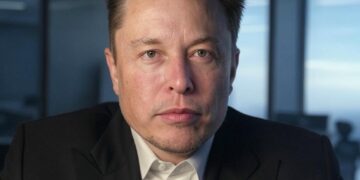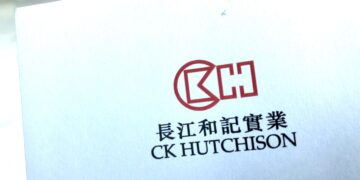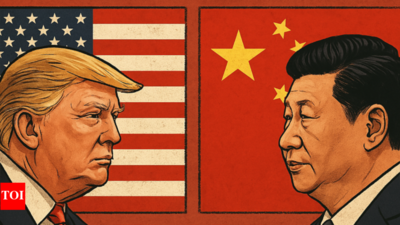Trump said his country would have a “fair deal with China,” adding that “everything’s active” when asked if Washington was talking to Beijing.
But how soon the tariffs can be lowered “depends on them,” he said, referring to Beijing, even as he maintained that he gets along “very well” with President Xi Jinping and hopes they can reach an agreement.
Despite signals that Washington is looking towards a fair agreement, the state of discussions remains murky over the 145 percent tariffs Trump has imposed on China and the 125 percent levies that Beijing has hit back with.
Asked if there is direct US contact with China on trade, Trump said: “Every day.”
But earlier in the day, US Treasury Secretary Scott Bessent said the two sides are “not yet” talking when it comes to lowering tariffs.
“I think both sides are waiting to speak to the other,” he said at an event on the sidelines of the International Monetary Fund and World Bank’s spring meetings in Washington.
He added that there is no unilateral offer from Trump to slash duties on Chinese goods.
Bessent said the staggeringly high tariffs both countries have imposed on each other’s goods have to come down before negotiations can occur.
“I don’t think either side believes that the current tariff levels are sustainable, so I would not be surprised if they went down in a mutual way,” he added on the sidelines of an Institute of International Finance forum.
“This is the equivalent of an embargo, and a break between the two countries in trade does not suit anyone’s interest,” Bessent said, stressing that “de-escalation by both sides is possible.”
But he had no timeframe on how soon bilateral talks could take place.
“It’s both a blessing and a curse that the strongest relationship is at the very top,” Bessent said, referring to Trump’s ties with Xi. But with “any de-escalation, the talks would not begin at the very top.”
Joseph Grieco, professor of political science at Duke University, said Trump may continue to chase China for a deal “to keep the financial markets off his back.”
While Trump has swiftly rolled out sharp tariffs on different countries and sectors, he has also been quick to introduce certain exemptions – most recently some temporary reprieve for tech products like smartphones and chipmaking tools.
And he could widen the carveouts, the Financial Times reported on Wednesday, saying Trump could exempt car parts from some tariffs on Chinese imports – alongside those on steel and aluminum. (AFP)






















